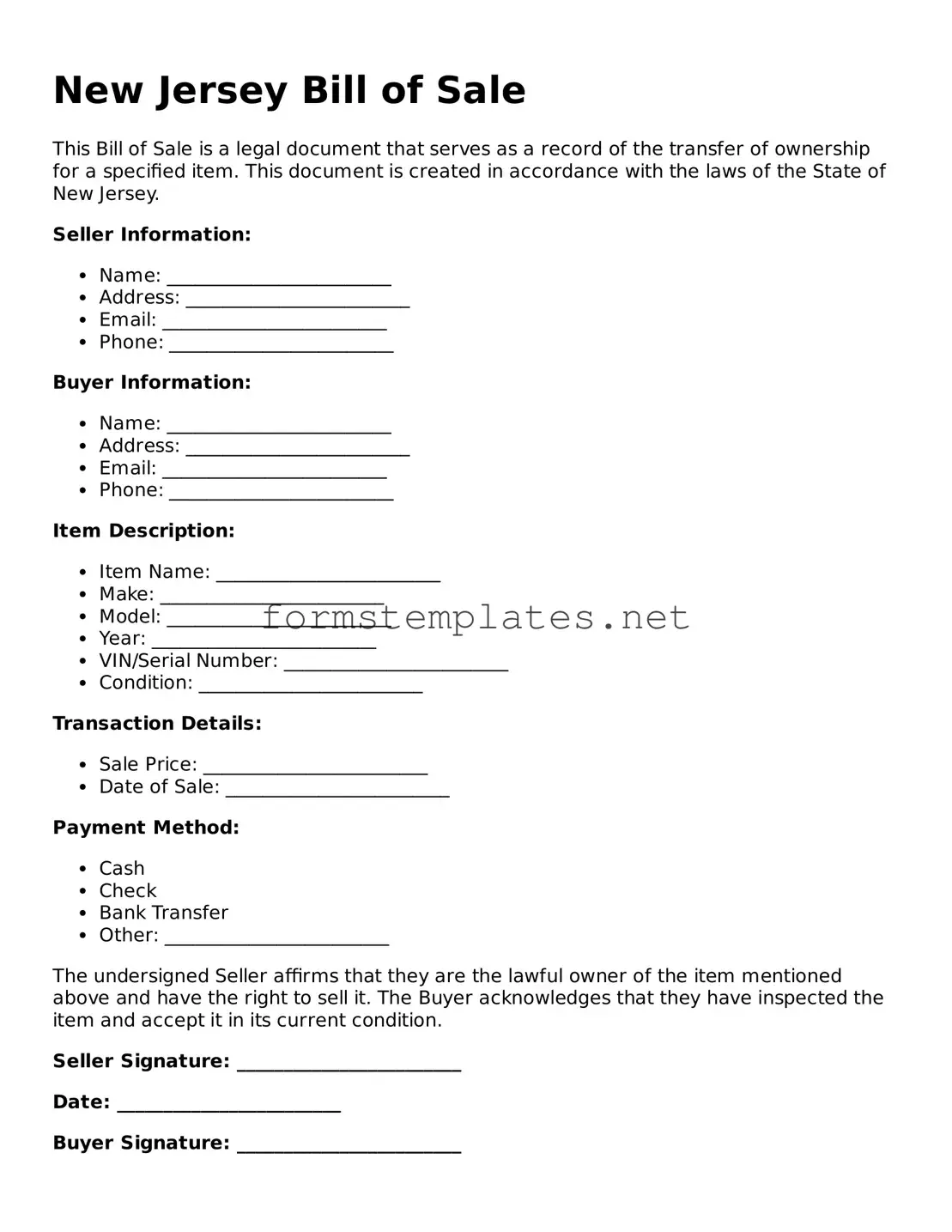A New Jersey Bill of Sale form is a legal document that serves as proof of the transfer of ownership of personal property from one person to another. This form is commonly used for transactions involving vehicles, boats, and other personal items. It includes essential information about the buyer, seller, and the item being sold.
When do I need a Bill of Sale in New Jersey?
You typically need a Bill of Sale when you are buying or selling personal property. This is especially important for items that require registration, such as vehicles or boats. Having a Bill of Sale protects both the buyer and seller by providing a record of the transaction.
A standard Bill of Sale in New Jersey includes:
-
The names and addresses of the buyer and seller
-
A description of the item being sold, including any identification numbers
-
The sale price
-
The date of the transaction
-
Signatures of both the buyer and seller
Is a Bill of Sale required for all sales in New Jersey?
No, a Bill of Sale is not required for every sale. However, it is highly recommended for significant transactions, especially for vehicles or items that may require proof of ownership. It can also help resolve disputes in case any issues arise after the sale.
Can I create my own Bill of Sale?
Yes, you can create your own Bill of Sale as long as it includes all the necessary information. There are templates available online that you can use as a guide. Make sure to include all relevant details to ensure it is legally binding.
Do I need to have the Bill of Sale notarized?
In New Jersey, notarization is not typically required for a Bill of Sale. However, having it notarized can add an extra layer of security and authenticity to the document. It may also be beneficial if you plan to register the item with a government agency.
What should I do with the Bill of Sale after the transaction?
After the transaction, both the buyer and seller should keep a copy of the Bill of Sale for their records. This document may be needed for future reference, especially for registration or tax purposes.
Can a Bill of Sale be used for a gift?
Yes, a Bill of Sale can be used for a gift. In this case, it should clearly state that the item is being given as a gift and include the names of both parties. This can help clarify ownership and prevent any future misunderstandings.
What if there are issues after the sale?
If issues arise after the sale, the Bill of Sale can serve as evidence of the transaction. It is important to keep all communication documented. If necessary, you may need to seek legal advice to resolve any disputes.
You can find a New Jersey Bill of Sale form online through various legal websites or local government resources. Ensure that the form you choose is up-to-date and complies with New Jersey laws.

